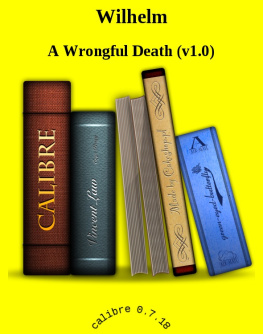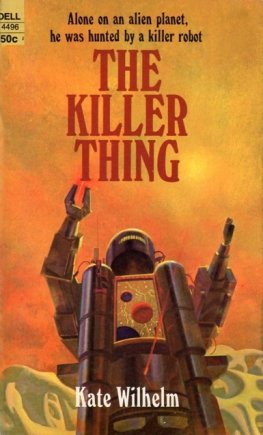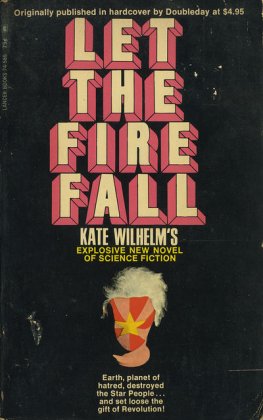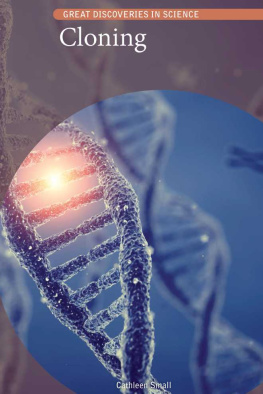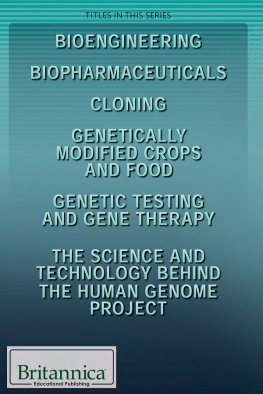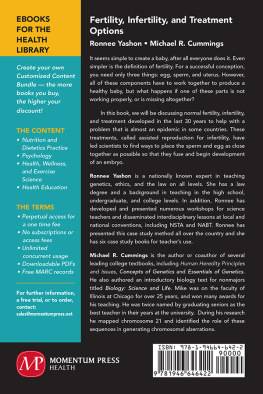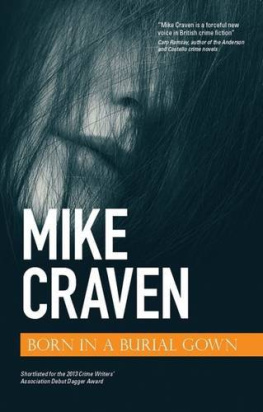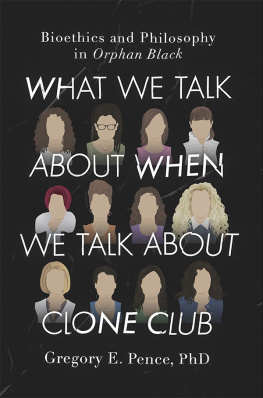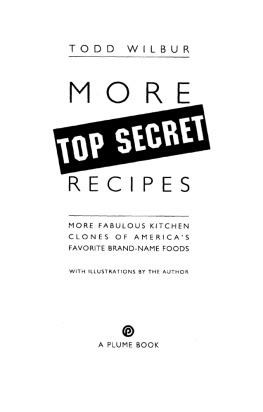Where Late the Sweet Birds Sang
by Kate Wilhelm
PART ONE
Where Late the Sweet Birds Sang
What David always hated most about the Sumner family dinners was the way everyone talked about him as if he were not there.
Has he been eating enough meat lately? He looks peaked.
You spoil him, Carrie. If he wont eat his dinner, dont let him go out and play. You were like that, you know.
When I was his age, I was husky enough to cut down a tree with a hatchet. He couldnt cut his way out of a fog.
David would imagine himself invisible, floating unseen over their heads as they discussed him. Someone would ask if he had a girl friend yet, and they would tsk-tsk whether the answer was yes or no. From his vantage point he would aim a ray gun at Uncle Clarence, whom he especially disliked, because he was fat, bald, and very rich. Uncle Clarence dipped his biscuits in his gravy, or in syrup, or more often in a mixture of sorghum and butter that he stirred together on his plate until it looked like baby shit.
Is he still planning to be a biologist? He should go to med school and join Walt in his practice.
He would point his ray gun at Uncle Clarence and cut a neat plug out of his stomach and carefully ease it out, and Uncle Clarence would ooze from the opening and flow all over them.
David. He started with alarm, then relaxed again. David, why dont you go out and see what the other kids are up to? His fathers quiet voice, saying actually, Thats enough of that. And they would turn their collective mind to one of the other offspring.
As David grew older, he learned the complex relationships that he merely accepted as a child. Uncles, aunts, cousins, second cousins, third cousins. And the honorary members the brothers and sisters and parents of those who had married into the family. There were the Sumners and Wistons and OGradys and Heinemans and the Meyers and Capeks and Rizzos, all part of the same river that flowed through the fertile valley.
He remembered the holidays especially. The old Sumner house was rambling with many bedrooms upstairs and an attic that was wall-to-wall mattresses, pallets for the children, with an enormous fan in the west window. Someone was forever checking to make certain that they hadnt all suffocated in the attic. The older children were supposed to keep an eye on the younger ones, but what they did in fact was to frighten them night after night with ghost stories. Eventually the noise level would rise until adult intervention was demanded. Uncle Ron would clump up the stairs heavily and there would be a scurrying, with suppressed giggles and muffled screams, until everyone found a bed again, so that by the time he turned on the hall light that illuminated the attic dimly, all the children would seem to be sleeping. He would pause briefly in the doorway, then close the door, turn off the light, and tramp back down the stairs, apparently deaf to the renewed merriment behind him.
Whenever Aunt Claudia came up, it was like an apparition. One minute pillows would be flying, someone would be crying, someone else trying to read by flashlight, several of the boys playing cards by another flashlight, some of the girls huddled together whispering what had to be delicious secrets, judging by the way they blushed and looked desperate if an adult came upon them suddenly, and then the door would snap open, the light would fall on the disorder, and she would be standing there. Aunt Claudia was very tall and thin, her nose was too big, and she was tanned to a permanent old-leather color. She would stand there, immobile and terrible, and the children would creep back into bed without a sound. She would not move until everyone was back where he or she belonged, then she would close the door soundlessly. The silence would drag on and on. The ones nearest to the door would hold their breath, trying to hear breathing on the other side. Eventually someone would become brave enough to open the door a crack, and if she were truly gone, the party would resume.
The smells of holidays were fixed in Davids memory. All the usual smells: fruit cakes and turkeys, the vinegar that went in the egg dyes, the greenery and the thick, creamy smoke of bayberry candles. But what he remembered most vividly was the smell of gunpowder that they all carried at the Fourth of July gathering. The smell that permeated their hair and clothes lasted on their hands for days and days. Their hands would be stained purple-black by berry picking, and the color and smell were one of the indelible images of his childhood. Mixed in with it was the smell of the sulfur that was dusted on them liberally to confound the chiggers.
If it hadnt been for Celia, his childhood would have been perfect. Celia was his cousin, his mothers sisters daughter. She was one year younger than David, and by far the prettiest of all his cousins. When they were very young they promised to marry one day, and when they grew older and it was made abundantly clear that no cousins might ever marry in that family, they became implacable enemies. He didnt know how they had been told. He was certain that no one ever put it in words, but they knew. When they could not avoid each other after that, they fought. She pushed him out of the hayloft and broke his arm when he was fifteen, and when he was sixteen they wrestled from the back door of the Winston farmhouse to the fence, fifty or sixty yards away. They tore the clothes off each other, and he was bleeding from her fingernails down his back, she from scraping her shoulder on a rock. Then somehow in their rolling and squirming frenzy, his cheek came down on her uncovered chest, and he stopped fighting. He suddenly became a melting, sobbing, incoherent idiot and she hit him on the head with a rock and ended the fight.
Up to that point the battle had been in almost total silence, broken only by gasps for breath and whispered language that would have shocked their parents. But when she hit him and he went limp, not unconscious, but dazed, uncaring, inert, she screamed, abandoning herself to terror and anguish. The family tumbled from the house as if they had been shaken out, and their first impression must have been that he had raped her. His father hustled him to the barn, presumably for a thrashing. But in the barn his father, belt in hand, looked at him with an expression that was furious, and strangely sympathetic. He didnt touch David, and only after he had turned and left did David realize that tears were still running down his face.
In the family there were farmers, a few lawyers, two doctors, insurance brokers and bankers and millers, hardware merchandisers, other shopkeepers. Davids father owned a large department store that catered to the upper-middle-class clientele of the valley. The valley was rich, the farms in it large and lush. David always supposed that the family, except for a few neer-do-wells, was rather wealthy. Of all his relatives his favorite was his fathers brother Walt. Dr. Walt, they all called him, never uncle. He played with the children and taught them grown-up things, like where to hit if you really meant it, where not to hit in a friendly scrap. He seemed to know when to stop treating them as children long before anyone else in the family did. Dr. Walt was the reason David had decided very early to become a scientist.
David was seventeen when he went to Harvard. His birthday was in September and he didnt go home for it. When he did return at Thanksgiving, and the clan had gathered, Grandfather Sumner poured the ritual before-dinner martinis and handed one to him. And Uncle Warner said to him, What do you think we should do about Bobbie?
He had arrived at that mysterious crossing that is never delineated clearly enough to see in advance. He sipped his martini, not liking it particularly, and knew that childhood had ended, and he felt a profound sadness and loneliness.


